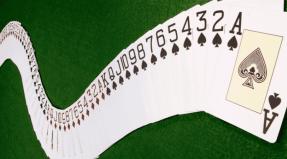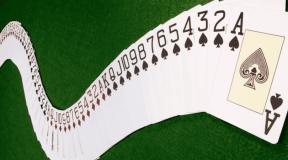How does debt collection occur if the debtor has no property? What should a creditor do if the debtor has no money and property? If there is no property, how to pay the debt to the bailiffs
The variety of loans has led not only to increased shopping opportunities, but also to the emergence of problems. Often consumers take out a loan without preliminary calculations, and then cannot cover it. This provokes the accumulation of debts.
To return their funds, the bank uses many methods: from contacting debt collectors to legal proceedings. The last option is the most reliable, since if there is a writ of execution, money can be seized through deduction from wages or the sale of seized property. But what if the debtor has no property and refuses to make payments? Are there any tools to put pressure on him?
Stages of trial
Initially, the relevant department of the bank needs to initiate a case regarding the formation of debt. This is done by filing a claim. After the court hearing begins. The bailiff begins the following actions:
- Request to the tax service to clarify the borrower’s place of work;
- A request of a similar nature to the pension fund;
- Request to the traffic police to check whether the borrower has a transport passport;
- Contacting the registration chamber to obtain information about a person’s property;
- Contacting banking institutions to verify accounts.
If one of the requests yields results and a source of income or property of the debtor is found, seizure begins with subsequent implementation. But what if the borrower has nothing?
It is impossible to take away household items from a person; selling an apartment if this is the only means of living is prohibited by law. What actions are taken if the debtor has no property? There are other methods of influence for this.
If there is no property, a ban on traveling abroad is imposed.
Measures taken in the absence of property from the debtor
 If nothing is found on the borrower, bailiffs have the right to take the following measures:
If nothing is found on the borrower, bailiffs have the right to take the following measures:
- Ban on traveling abroad;
- Checking whether a person is married by contacting the registry office. If the answer is yes, the creditor has the right to seize half of the property from the defendant's spouse;
- Negotiating, trying to resolve a conflict through compromise.
Measures taken if a person has nothing are aimed at putting pressure on the debtor. This is the only way out, since criminal liability will not affect persistent defaulters.
If a person does not have funds, he is influenced in such a way that he makes efforts to return the money: looking for a job, sources of income.
What happens if the borrower doesn't pay anything back? Enforcement proceedings end. A person who does not cover his obligations is not punished in any way.
If the debtor has reached retirement age, the creditor has the right to withhold half of the pension to the bank. This measure does not depend on the personal will of the person. The funds are withdrawn and transferred to the lender’s account without the participation of the defaulter.
Recommendations for the return of funds when the debtor has nothing
 If a bank is handling distressed debt, simply filing a claim is not enough to increase the chances of success for the business. Often bailiffs do not work very quickly and efficiently, and therefore you will have to act on your own. This can be done in the following ways:
If a bank is handling distressed debt, simply filing a claim is not enough to increase the chances of success for the business. Often bailiffs do not work very quickly and efficiently, and therefore you will have to act on your own. This can be done in the following ways:
- Contacting mediation services. Such companies help in negotiating with the borrower and searching for a compromise solution to the situation;
- Ordering collection services. You can contact collectors when you have received a writ of execution. A commercial company that works for interest on debt will work with the debtor much faster than bailiffs. , we have already written;
- Active interaction with bailiffs. To facilitate the work of authorized persons, it is worthwhile to independently collect all information about the debtor and transfer it to the appropriate authorities;
- Filing a complaint against bailiffs. If employees are inactive, the lender has the right to complain against them. You can send a complaint to higher bailiffs.
If the borrower's obligations are large, the bank or credit institution may take on even more obligations:
- Independently sending requests for information about the debtor;
- Agreeing on the time of a personal visit to the borrower;
- Assisting bailiffs in traveling to authorities.
With the active work of the bank, the chances of business success increase many times over.
Responses to requests to the authorities by mail are received within 1-2 months. During this time, the debtor may have time to hide his property and sources of income. In order to prevent this, you need to act very quickly. However, the bailiffs are overloaded with work, which causes delays in the execution of the court decision. Help from a lender will make the process much more efficient. This is especially true if the amount of obligations is large.
In conclusion, we bring to your attention a short video about methods of collecting debts from a legal entity without property:
A big debt is worth fighting for. This can be done by the relevant department of the banking institution.
The debt collection process is complex. The situation is even more interesting if a person is naked as a falcon, that is, has no job, no money, no property. How to collect a debt from such a debtor? There are certain procedures for implementing a court order, but do not delude yourself too much. If you have nothing to take from a person, then you won’t take any debt from him, unless you force him to get a job in order to deduct 50% from his salary, but this is already in the realm of fantasy.
How bailiffs work
After the court decision, the debtor is given 30 days to repay the entire amount. Next, the bailiffs get to work. The speed at which they appear on the debtor’s doorstep depends on the workload.
So, the bailiffs rang your doorbell... You are obliged to ask them for documents so as not to let strangers into your apartment or house. Next, your home will be inspected. The bailiff needs to get an idea of how “chic” you live, what of your household appliances and luxury items can be sold to pay off the debt to the creditor.
But if the debtor has no property, how to collect the debt from him? Next begins the routine and lengthy work of the bailiff:
- He submits a request to determine whether the debtor has property. This does not have to be the housing in which he lives. It takes a lot of time to get a response from different authorities. As soon as the answer is received, and it confirms the worst of fears - the absence of something large, valuable, the next stage of work begins.
- The place where the debtor works is being sought. If he is officially employed, there are no problems. The bailiff is sent with a writ of execution to the head of the organization, after which he issues an order to withhold 50% of wages in favor of the credit organization indicated in this sheet. If the debtor does not work de facto, how to collect the debt from him?
- If the fact of having a job has not been established, the bailiff begins to search for possible bank accounts. It is impossible to process all existing banks in nature, so requests are sent to large federal and regional ones. If accounts are detected (debit cards also fall into this category), they are blocked. An empty debit card can also be blocked, and its limit goes into minus by the amount of the debt. Everything that suddenly arrives there immediately goes to the creditor’s account.
- Another way to put pressure on a poor debtor is to find out whether he is married. This trick is in vogue among those borrowers who predicted in advance the deterioration of the financial situation and checked out of their home, becoming homeless, but at the same time continued to pay their debts until a certain time. If the person is not divorced, the bailiff will definitely pay attention to the spouse’s property and take exactly half to pay off the debt.
The least effective way to influence a debtor is to prohibit him from traveling abroad. But it is ineffective if a person really finds himself in a debt trap, and is not a swindler who skillfully hides his assets. However, this method of influence still works if the debtor/debtor decides to tie the knot, while his/her significant other is more than wealthy and can afford to travel abroad. In this case, the ban on traveling abroad will come into effect.
If the debtor sits
For ordinary loan borrowers, who at first regularly pay the loan fee, and then, by coincidence, find themselves broke, there is no threat of prison. Outright scammers end up there - they took out a loan using forged documents, deceived the bank about their financial condition, or did not make a single payment.
If the debtor is in prison, how to collect the debt? The exact same scheme applies here, with the only exception that not all criminals work in prison. This means that if he does not have movable/immovable property, he is not married, or his spouse does not have property, and the debtor does not work, it is almost impossible to collect anything from him.
The bailiff can only wait until he is released, and then closely monitor whether he can get a job in order to subsequently foreclose on 50% of his wages.
Should relatives pay the debt?
Is it possible collect a debt With relatives of the debtor? Usually this question is asked by the would-be borrower himself when the court decision has entered into legal force. Remember, if relatives are not guarantors, nothing can be recovered from them by law. The answer to the question “is it possible to collect debts from the debtor’s children” is similar. None of the relatives, no matter how close or distant they may be, is responsible for other people’s debts.
A difficult situation is when the debtor was previously registered in the apartment of his relatives, and then, having checked out, did not notify the bank about it. In this case, both employees of the bank's overdue debt department and collectors/bailiffs will come to the address specified in the loan agreement. It is not worth letting them into the apartment; in addition, it is necessary to prepare documents for all large household appliances and luxury items, confirming the fact that they belong to relatives and not to the debtor.
In practice, there are cases (quite rarely, usually in the regions) of illegal seizure of property from relatives by bailiffs. In such a situation, it is necessary to file a lawsuit against the illegal actions of a bailiff service employee.

If the debtor died
Situations where the unfortunate borrower could not stand it and gave his soul to God are not uncommon. In this case, the question arises: how to collect debt from a deceased debtor? In practice, everything is transparent and understandable. Debts pass to heirs just like inheritance. And you can get rid of them only by completely abandoning everything.
If there are several heirs and the amount of debt is small, it would be reasonable to enter into an inheritance and divide the amount of debt equally.
Debtor-pensioner
In the 21st century, a large number of banks have introduced loans for pensioners. They are lured with interesting interest rates, promised a flexible payment system and other goodies. In practice, this is the same as a consumer loan that must be repaid. Not all pensioners understand this, because they were born at a time when no one provided such services to the population.
Is it possible to collect a debt from the debtor's pension? Yes, you can. The deduction amount will be no more than 50% of the pension amount. Additionally, particularly ardent bailiffs can also describe the valuable property of a pensioner. But in practice, such debtors usually do not have anything worthwhile in their homes.
If the debtor is a minor
Debt for a child under 18 years of age may arise if he accepts an inheritance encumbered by a loan or other debt obligations. Responsibility in such a situation lies with either the parents or guardians. Full responsibility comes from the age of 18. The bailiffs know how to collect a debt from a minor debtor, therefore they prefer to communicate with its representatives so as not to traumatize the child’s unstable psyche.
If a lender sues its borrower and wins, what next? Now this is the job of the bailiffs, who are obliged to return the money to the bank. But what should the bailiff do if the debtor has no property and nothing to take from him?
It is important that in our country bailiffs are simply overwhelmed with cases. For one person from such a service there are more than 2 thousand cases. It is immediately clear that it is difficult for them to work and the bank does not expect great results. But what is important for the debtor who is approached by the bailiff to know?
Having initiated debt collection proceedings and waited for the deadline for voluntary payment of the debt, the bailiff will perform the following actions:
1. Send a request to the federal tax service inspectorate in order to find out information about the borrower’s place of work. The tax office has this information, since every employer is required to make deductions from the salaries of its employees.
2. The second is a request to the traffic police service about whether the debtor has a car.
3. The next request is to the Federal Service for State Registration, Cadastre and Cartography about whether the debtor owns real estate or plots of land.
4. Next come small requests to various banks about the availability of open accounts, cards, deposits, and about the amounts of money in these accounts. How does the bailiff know which banks to submit these requests to? He doesn’t know, so he submits them to the largest ones in a particular city, for example, Sberbank, VTB, Gazprombank and others.
After sending such requests, the bailiff expects a certain response time from all structures. If at least one of the requests confirms that the borrower has property, then the bailiff begins to seize and sell this property. If earnings are discovered, 50% of these cash receipts is deducted until the debt is fully repaid to the creditor. If there is money in accounts in other banks, it will be seized. The car will be put up for sale, and if it is not found, a search will be launched. The property will also fall under arrest, with the exception that if it is one apartment, then it cannot be taken away by evicting the debtor.
The second apartment will be put up for sale and repayment of the debt to the bank.
If all requests come back empty, then bailiffs will come to your home and seize household appliances. This measure will not bring a large amount of money, but will add stress to debtors, thus reminding them of unfulfilled obligations.
The next drastic measure is a ban on traveling outside Russia; it may be required by a bailiff for his debtor. And this often bears fruit, so you should not joke with this measure. Of course, this measure is not terrible for stay-at-home debtors, but no one knows what will happen to him tomorrow and whether he will need to go abroad.
Last but not least, the bailiff will send a request to the registry office to clarify the marital status of the debtor. After all, if there is a husband/wife and all the property is registered in their name, then the creditor has a real chance to seize part of this property to repay the loan. If there is a marriage, similar requests to various services are submitted again, only in the name of the spouse.
This is where debt collection measures end. There are also additional fees for the bailiff, as well as penalties for late payments, but all this does not make sense if the debtor is “naked as a falcon.”
According to our laws, there are no criminal penalties for debts. Such an article exists only for alimony debts, but this is not our case. Creditors usually expose their debtors as fraudsters, but no one will initiate a case, because these are civil relations.
For banks, in fact, measures such as criminal punishment are not important, because the main goal is to get their money back. Alternatively, the debtor could work off this debt, but according to the law, such a measure is not applicable. Labor is free according to our Constitution.
There are versions that a bill to deprive a debtor of a driver’s license has been under consideration for a long time. This measure could scare many unscrupulous borrowers, but so far it is only on paper and has no effect.
If the bailiff did everything in his power, but could not return anything, then he simply closes the enforcement proceedings. The writ of execution will be sent back to the creditor. The claimant will be able to present this sheet regularly, for many years, and thus make the debtor’s life not very pleasant.
You should not breathe a sigh of relief if the case is closed, because according to the law it can be opened again and again. Bailiffs will regularly make inquiries, look for property, money and other options to collect your debt. Hiding your income all your life, not being able to travel outside the country, making large purchases for relatives - is an outstanding loan worth such inconvenience? It's up to you to decide, but debt is worth paying, as people say.
Hello, Sophia!
The situation is quite familiar. In my practice this has happened more than once. The last time was last year. The debtor wife, having received a letter from the court about accepting the case for personal debt obligations, promptly fictitiously divorced her husband and quickly made a deed of gift for her apartment to her own daughter. There was no other property. He made an attempt to challenge this transaction as out of competition, made by the debtor to the detriment of the creditor. The court of first instance did not see any abuse of right on the part of the debtor and rejected the claims. The Court of Appeal - “overpowered”. The Client did not want to go higher.
After that, I continued to actively work with the bailiff. Submitted an application to declare a search for the debtor's property.
Federal Law of October 2, 2007 N 229-FZ (as amended on December 27, 2018) “On Enforcement Proceedings”
Article 65. Executive search
1. In the cases established by this article, the bailiff, in the course of enforcement proceedings, announces an executive search for the debtor, his property or an executive search for a child, provided that the other enforcement actions performed by him, provided for by this Federal Law, did not allow the location of the debtor, his property or location of the child.
After this, however, with a lot of “creaking”, the search officer still opened a search case (r/d).
As part of this w/d, relevant requests were made, including regarding the property of the debtor’s ex-husband. As well as requests to the registry office and the notary chamber. A letter came from Rosreestr stating that the ex-husband owns a large residential building and two plots of land acquired during his marriage to the debtor. An answer came from the notary office that the notarial division of the property of these spouses was not formalized and such notarial actions were not registered.
Here it is. BINGO! The spouses filed for divorce, but did not think of formalizing the notarized division of joint property.
“Family Code of the Russian Federation” dated December 29, 1995 N 223-FZ)
RF IC Article 38. Division of common property of spouses
1. The division of the common property of the spouses can be made both during the marriage and after its dissolution at the request of any of the spouses, as well as in the case of a creditor’s request for the division of the common property of the spouses in order to foreclose on the share of one of the spouses in the common property of the spouses.2. The common property of the spouses may be divided between the spouses by agreement. An agreement on the division of common property acquired by spouses during marriage must be notarized.
Any other form of division of such property, except for a notarial agreement, is void by virtue of the Law.
I immediately submit a petition to the bailiff to seize the common property registered in the name of the spouse. Fortunately, the law allows this, based on paragraph 44 of the Resolution of the RF PVS No. 50/2015,
44. In order to ensure the rights of the creditor on the basis of parts 1 and 4 of Article 80 of the Law on Enforcement Proceedings, it is possible to seize or establish a ban on disposal (ban on performing registration actions) in relation to property that is in common joint ownership of the debtor and another person (persons) , before determining the debtor's share or before its allocation.
The bailiff was knowledgeable; there was no need to explain for a long time. He gave me orders to prohibit registration actions with this real estate and an order to deliver them to Rosreestr. I personally took these documents to Rosreestr, got the bans registered, and personally monitored all the registrar’s actions to comply with the bailiff’s orders.
After this, I received from the bailiff a resolution prohibiting the registration of citizens at the addresses of these real estate objects and an order to deliver them to the executor. I personally took these decisions to the Migration Department (Department for Migration Issues) of the local police department and monitored their implementation. Clause 43 of the same, already legendary, Resolution of the RF PVS,
For example, the arrest as an interim measure of residential premises owned in whole or in part by a debtor-citizen, which is the only one suitable for permanent residence of the debtor himself and his family members, as well as the establishment of a ban on the disposal of this property, including a ban on the occupancy and registration of other persons, themselves cannot be considered illegal if these measures are taken by a bailiff in order to prevent the debtor from disposing of this property to the detriment of the interests of the claimant.
Well, that’s probably all with interim measures.
Now I am preparing a statement of claim to the court for the division of the spouses’ common property, to determine the debtor’s share in such property, for the purpose of further foreclosure on this share.
Perhaps many will say that I was just lucky. But, I will answer this way: the one who is lucky is lucky. And, unfortunately, it doesn’t happen otherwise in life.



















